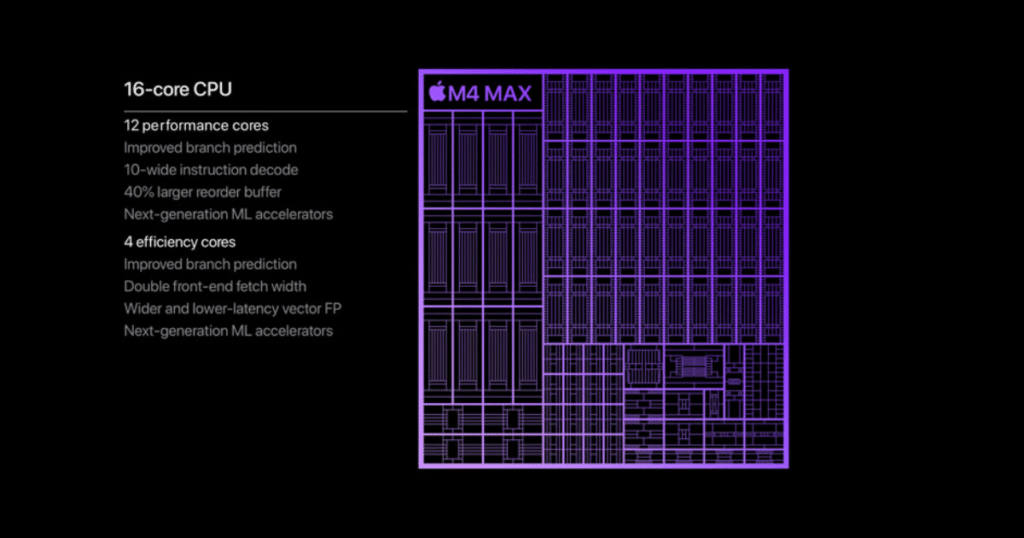Earlier this week, Apple introduced its 2024 MacBook Pro lineup, featuring the M4, M4 Pro, and M4 Max chips, marking the latest leap in Apple Silicon’s evolution. The anticipation surrounding these processors has been immense, with many wondering how much of an upgrade they would provide over their predecessors.
Benchmarks for the M4 Pro had already surfaced, showing a powerful multi-core performance that even outpaced Apple’s top-tier M2 Ultra chip. But now, Geekbench 6 Metal scores for the M4 Max chip have leaked, and the results suggest that Apple’s chip development is advancing at a breakneck pace. With its 40-core GPU, the M4 Max significantly boosts graphical power, scoring 192,532 on Geekbench’s Metal benchmark—a nearly 25% increase over the previous generation.
The M4 Max’s Metal score of 192,532 indicates Apple’s clear commitment to optimizing graphics performance. For reference, the M2 Ultra, which sports a larger 76-core GPU, achieved a Metal score of 221,646. While the Ultra model still holds the lead in raw GPU power, the impressive Metal score of the M4 Max is remarkable given its lower core count.
Compared to last year’s M3 Max, which received a Metal score of 154,860, the M4 Max demonstrates a substantial increase, bridging the gap between the Max and Ultra configurations and offering professional users even more capability for tasks that require high-performance graphics, such as video editing and 3D rendering. This score is a testament to Apple’s efforts to push the boundaries of what its SoCs can achieve, particularly in areas where raw graphical processing power is critical.
Beyond just graphics, the M4 Max chip shows considerable gains in CPU performance as well. In early tests, the chip achieved a single-core score of 4,060 and a multi-core score of 26,675, which is around 45% better than the M3 Max in single-core performance. This improvement is likely due to both the architectural advancements and the increased clock speed of the new M4 series.

Vadim Yuryev, who shared the Geekbench scores on social media, compared the new M4 Max with previous generations of Apple Silicon, demonstrating the substantial performance leap Apple has achieved.
For consumers, these benchmarks translate into real-world improvements that can have a dramatic impact on daily workflows, particularly for those who rely on their MacBook Pro for intensive tasks like video production, software development, and data analysis. The higher single-core score of the M4 Max means that tasks reliant on single-threaded performance, such as certain applications and functions within macOS, will feel faster and more responsive.
The M4 Max’s 26,675 multi-core score puts it in competition with desktop-class processors, marking Apple’s most formidable showing in high-performance computing. When stacked against competing chips from Intel and AMD, the M4 Max outshines several desktop-class processors, including Intel’s Core i9-14900KF, which scored 20,115 in multi-core tests.
Subscribe to our email newsletter to get the latest posts delivered right to your email.


Comments